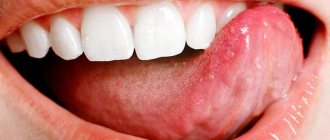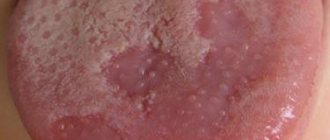The sour taste in the mouth is disturbing and unnerving. Unpleasant taste sensations in the mouth outside of food consumption are a sign of a large number of diseases.
There is such a gastronomic concept as aftertaste. And it is not always pleasant. This is a reaction to stimuli from the taste buds located on the tongue and the inner surface of the cheeks.
A sour taste in the mouth can be the result of using lemon, vinegar, and various marinades for cooking. During the period of not eating food, no foreign tastes should be felt in the oral cavity. If the aftertaste does not go away, or any additional symptoms appear, then the cause of this phenomenon should be identified.
Causes of discomfort
The taste in the mouth tells about the health of the whole body.
The reasons for the appearance of acid in the oral cavity can be both diseases of various organs and a joyful event - the onset of pregnancy.
Possible diseases that cause an unpleasant aftertaste:
- increased acidity of gastric juice;
- excess production of hydrochloric acid;
- disturbances in the gastrointestinal tract - pancreas, reflux disease;
- periodontal diseases;
- the presence of crowns or fillings made of different metals in the oral cavity - such combinations form a galvanic couple and a physical and chemical reaction of electrolysis takes place in the oral cavity;
- electrolyte imbalance;
- dehydration of the body;
- taking medications;
- impaired bile formation and liver pathology - as a result of eating fatty and heavy foods; pregnancy in the middle and late stages - the growing uterus compresses the stomach and hydrochloric acid refluxes into the esophagus and oral cavity.
All these processes are accompanied by additional symptoms. Therefore, if you regularly experience an unpleasant sensation in the oral cavity, you should undergo a comprehensive examination.
If at the same time there is pain in the epigastrium, nausea, and stool disorder, then you need to urgently contact a medical institution.
The following video will familiarize you with the causes of sour taste in the mouth:
Aloe vera
Aloe vera is known to be a natural healing agent and also fights acid reflux in addition. This remedy is available as a live plant, but sometimes the leaves and liquid form of Aloe Vera are sold separately in grocery and health food stores. Aloe vera is used in formulations as a thickener or as a means to set liquids.
Acid and sweet
Acidity in the mouth is not a very pleasant sensation
A pure taste sensation is rare. Since there are receptors in the oral cavity for determining and analyzing various combinations.
In a pathological process, acid may predominate, but in most cases other flavors are also present. This provides additional information to find the cause of the unpleasant sensation.
Sweet and sour taste is caused by the following conditions:
- increased blood glucose levels due to stress, physical exertion;
- state of depression;
- excessive consumption of sweets;
- disruption of the gastrointestinal tract;
- liver pathologies;
- toxic effects of pesticides, gaseous chemicals;
- smoking cessation period;
- diabetes with a slight increase in blood glucose levels, a latent form of the disease;
- pathologies of the maxillofacial system, which are accompanied by purulent processes - gum disease, caries, periostitis, gumboils and abscesses.
Before contacting a doctor, you should analyze the factors that contribute to the appearance of a sour taste in the mouth.
Diagnostics
To determine the etiological factor of the sweet taste in the mouth, a consultation with a gastroenterologist is required, who, after an initial examination, can refer the person to other specialists. First, the doctor collects an anamnesis and examines the oral cavity in detail for purulent processes, then prescribes specific tests and instrumental methods. From a diagnostic point of view, the most important are:
- Blood tests
. In a biochemical study, attention is paid to glucose levels; even with a slight increase in sugar, an oral stress test is performed. To determine the cause of a sweetish taste in women, the concentration of estrogen and progesterone is assessed, and the level of hCG is measured. A clinical blood test reveals leukocytosis and increased ESR. - Gastroscopy
. If the unpleasant taste is accompanied by heartburn and chest pain, an endoscopic examination of the upper gastrointestinal tract is informative. The method is necessary to identify inflammatory changes in the mucous membrane, disorders of the contractile function of the lower esophageal sphincter. During endoscopy, a biopsy of pathologically changed areas is performed. - Sonography
. During a targeted ultrasound of the pancreas, the heterogeneity of the structure, the presence of hypoechoic areas, and space-occupying formations are determined. With pancreatitis, swelling and blurred contours of the organ are detected. Women are shown an ultrasound of the pelvic organs; transvaginal ultrasound is used for detailed visualization. - Neurological examination
. If the sweet taste is combined with paresthesia and swallowing disorders, damage to the central nervous system structures must be excluded. A standard examination includes checking pharyngeal and pupillary reflexes and assessing muscle strength and tone. To visualize the brain, an MRI or CT scan with contrast is performed. An EEG is sometimes recommended.
Acid and bitterness
A bitter taste indicates a disruption of the liver and bile ducts. It may appear occasionally, but may bother you regularly.
Possible causes of a bitter-sour aftertaste:
- significant errors in nutrition - the liver is simply not able to cope with so many fatty, heavy, spicy foods, alcoholic drinks;
- alcoholism - the liver suffers first;
- treatment with aggressive drugs - a long course of antibiotics, antihistamines, and other medications;
- those who like to smoke a cigarette at night.
If we consider bitterness in the oral cavity in terms of the intended diagnosis, then most often it is cholecystopancreatitis, erosion of the mucous membranes of the stomach and intestines, gastritis.
Treatment
Information on how to reduce stomach acidity should be obtained from a gastroenterologist. Any options for self-medication at home using improvised means are not only ineffective, but can also lead to the development of complications. For symptoms of gastritis with high acidity, diet and treatment include exclusion from the diet of fried and fatty foods, smoked meats, fast food, alcohol, canned meat, fish and vegetables, spices, seasonings, and sauces. You should eat in small portions, 4-5 times a day. Dishes must be prepared mainly by steaming or boiling. In case of increased acidity of the stomach, diet No. 1 according to Pevzner is prescribed.
For symptoms of gastritis with low acidity, treatment and diet include recipes for dishes that stimulate the acid-forming function of the stomach.
To treat high stomach acidity, traditional medicine uses the following groups of pharmaceuticals:
- Antibacterial drugs that are effective for hyperacid gastritis caused by the bacterium Helicobacter pylori.
- Enveloping agents.
- Proton pump inhibitors.
- Antacids.
- H2 histamine blockers.
- Bismuth preparations.
To maintain normal gastric acidity, it is important to maintain a balance of normal gastric microflora. For this purpose, it is recommended to use metaprebiotics, which contain a natural nutrient substrate for gastric and intestinal bacteria. Metaprebiotic Stimbifid Plus helps not only restore the balance of normal gastric and intestinal microbiota, but also promotes the eradication (destruction) of Helicobacter pylori. Also, metaprebiotic components accelerate the process of restoration of the gastric epithelium.
Metal
The reason may be unhealthy teeth or gums.
A metallic taste in the mouth can be caused by metal crowns or fragments of dentures. In this case, you should discuss with your dentist the issue of replacing them. When making a diagnosis, exclude:
- diseases of the periodontium and maxillofacial system with obvious signs of a purulent process;
- bleeding from the gums;
- poisoning with salts of heavy metals - such taste sensations are caused by mercury, zinc, arsenic, copper;
- diabetes mellitus in the stage of decompensation with a slight change in blood sugar levels;
- Iron-deficiency anemia;
- chronic bleeding due to stomach ulcers;
- hormonal disorders;
- taking certain medications. The appearance of such sensations is facilitated by drugs from the NSAID group and anticonvulsants. When the drug is discontinued, the metallic taste disappears on its own.
Fennel
Fennel (pH 6.9) Anise-flavored dill, great food for acid reflux, actually improves stomach function. This crunchy vegetable has a unique taste - a mild licorice flavor. Sliced thin (white bottom), it makes Arugula and Spinach Salad a healthy choice. It's also great for chicken dishes and appetizers, as long as you like that licorice (licorice root) flavor.
Acid and milk
Sour taste is common during pregnancy
This is a rare sensation, since in normal conditions it is caused only by the consumption of fermented milk products. When such an aftertaste appears, one can assume:
- chronic stress;
- infection with intestinal parasites;
- various diseases of the gastrointestinal tract.
Outside of food intake, a sour milk taste in the mouth appears along with additional symptoms. This is a reason to contact a medical institution as soon as possible.
Excess salt on the menu
A similar symptom may appear when we eat excessively salty foods. For a long time now, scientists, doctors, as well as adherents of a healthy lifestyle have noted that salt in large quantities is dangerous for the human body. And its main danger is the load on the cardiovascular system, urinary system, and kidneys. It also increases blood pressure. Therefore, to some extent, modification of diets can lead to the fact that taste perception is restored and excess salt begins to be felt.
Sour taste in pregnant women
The appearance of such an unpleasant aftertaste in a pregnant woman is facilitated by 2 metabolic processes associated with the process of bearing offspring.
You can thank for the acid in your mouth:
- The hormone progesterone. This is a necessary condition for pregnancy. This substance helps relax muscle tissue, preventing the development of fetal rejection. Ideally, it should act only on the muscles of the uterus. But in reality, all smooth muscles relax, including the muscles of the stomach and esophagus.
- The growing uterus puts pressure on the hollow organs. There is a reflux of stomach contents into the esophagus and oral cavity. The result is heartburn and an acidic taste in the mouth.
In this case, taking an antacid is indicated at the discretion of the gynecologist. But first you should exclude diseases of the gastrointestinal tract. The drug of choice can be Gaviscon in any convenient form.
During pregnancy
At this stage, significant changes occur within the female body, since the functioning of most organs is reconstructed or various pathological processes are formed.
Basically, the milky taste during pregnancy is a consequence of the formation of gestational diabetes.
Since the pancreas is not able to cope with stress, the sugar content in urine, bloodstream, and saliva increases, which leads to the occurrence of this condition.
Gestational diabetes can be caused by:
- late pregnancy;
- chronic gastrointestinal diseases;
- excessive body weight in a pregnant woman;
- malformations in previous pregnancies;
- the fruit is too large;
- pancreatitis or polyhydramnios.










